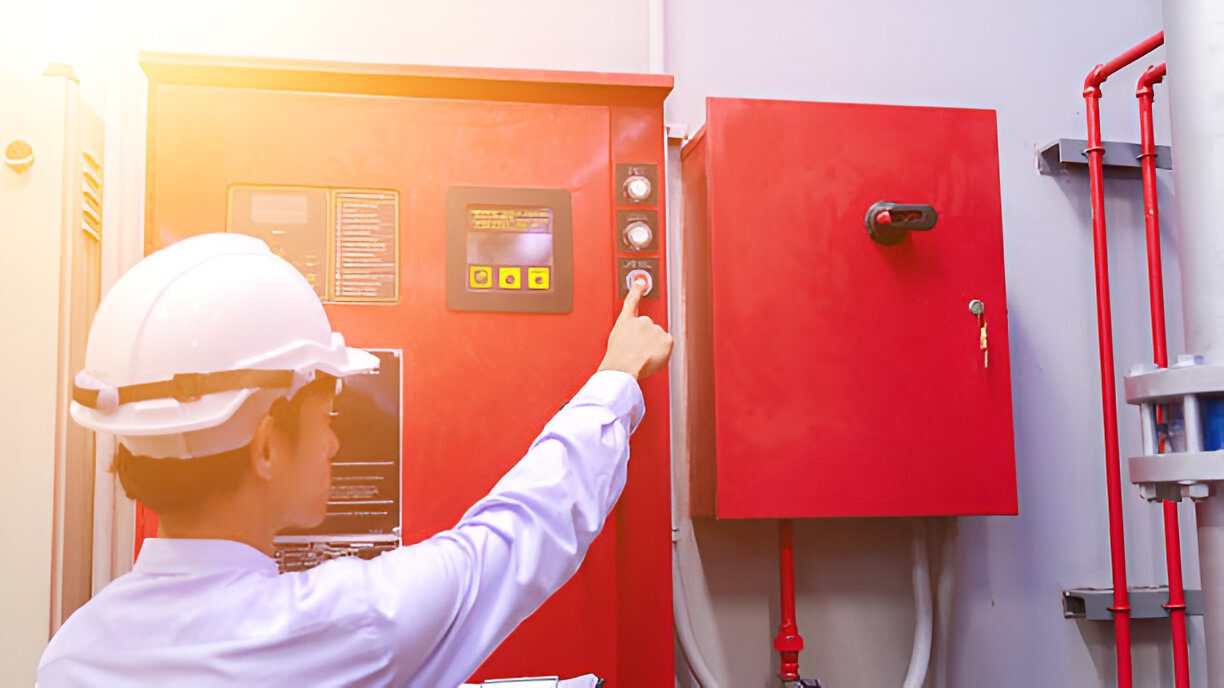Ensuring the safety of a building is paramount, and one of the most important aspects of protecting a property from fire hazards is selecting the right fire suppression system. A fire suppression system is designed to detect and control or extinguish fires, preventing significant damage to both the structure and its occupants. With various types of fire suppression systems available, it can be challenging to determine which one is most suitable for your building’s specific needs. This article will guide you through the process of choosing the right fire suppression system, covering factors such as building type, system functionality, and maintenance requirements.
Fire Suppression Systems
A fire suppression system is a critical safety measure that can help contain or extinguish fires in buildings. These systems vary in design and operation, depending on the needs of the building and the types of risks present. Some systems release water to douse flames, while others use chemicals or gas to suppress fires without causing water damage. Regardless of the type, all fire suppression systems have one goal: protecting life and property by minimizing fire damage.
In commercial and residential buildings, choosing the right fire suppression system is a significant decision. The right system depends on the type of structure, the type of fire risk present, and the specific fire hazards associated with your property.
Types of Fire Suppression Systems
The two most common types of fire suppression systems are water-based and chemical-based systems. Both have their advantages and are suitable for different types of environments.
Water-Based
Water-based fire suppression systems, like sprinkler systems, are widely used because of their simplicity and effectiveness. These systems release water in the event of a fire to cool down flames and suppress the fire’s spread. Water sprinklers are particularly effective for residential buildings, offices, and areas with minimal electrical equipment.
One of the main advantages of water-based systems is their ability to suppress fires quickly and effectively in certain environments. However, water can cause significant damage to sensitive equipment, such as computers, electrical systems, or important documents. Therefore, these systems may not be ideal for all settings.
Chemical-Based
Chemical fire suppression systems use fire retardants, gases, or chemicals to suppress fires without water. These systems are ideal for areas with sensitive equipment or materials that could be damaged by water. For instance, chemical suppression is often used in server rooms, electrical panels, and museums where valuable items need protection.
These systems typically use specialized agents such as CO2, FM-200, or dry chemicals to disrupt the fire’s chemical reaction and stop its progress. Chemical suppression systems are fast-acting and can quickly extinguish fires without leaving a trace of damage. However, they may require regular maintenance and testing to ensure proper function.
Assessing Your Building’s Needs
The first step in choosing the right fire suppression system for your building is to assess your specific needs. Consider the following factors when deciding:
Type of Building
Different types of buildings require different fire suppression strategies. For example, residential buildings may only need water-based sprinkler systems, while commercial buildings with sensitive equipment might need chemical fire suppression systems. Understanding your building’s primary function will help determine the most effective solution.
Fire Risks and Hazards
Identifying fire risks in your building is crucial. If your building stores hazardous materials or contains high-value items, a chemical-based suppression system may be necessary to prevent water damage. If your building is more traditional with less sensitive equipment, a water-based suppression system may be sufficient.
Local Fire Codes and Regulations
Fire safety regulations vary by location and must be adhered to when selecting a fire suppression system. Consult with local fire authorities and ensure that your chosen system meets all applicable fire codes in your area. Some jurisdictions may require specific fire suppression systems in certain types of buildings.
Maintenance and Testing
Fire suppression systems require regular maintenance and testing to ensure that they will function properly in an emergency. Some systems, like water sprinklers, may need periodic inspection for leaks or blockages, while chemical systems require testing of gas canisters or chemical agents. Understanding the ongoing maintenance requirements of your system is essential for long-term effectiveness.
Working with Fire Safety Professionals
Choosing the right fire suppression system is a decision best made with the help of professionals. Fire safety experts can assess your building, identify potential risks, and recommend the most suitable system. Fire safety equipment suppliers, like those offering fire safety equipment in Corona, can also help guide your decision by offering products that meet local safety standards.
An expert will help evaluate the specific needs of your property and ensure that the installation process goes smoothly. Fire safety professionals can also provide valuable insights into compliance with fire regulations, helping you avoid costly fines or legal issues down the line.
Considering the Cost of Installation and Operation
While it is essential to select the right fire suppression system, the cost is also a significant factor to consider. The price of installation can vary greatly depending on the system chosen. Water-based systems tend to be more affordable, while chemical-based systems can be more expensive due to their complexity.
In addition to the initial installation costs, you should factor in the ongoing maintenance and operational costs. Some systems may require frequent refills of chemicals, while others may need regular inspections and testing. Make sure you have a clear understanding of the long-term costs involved.
Reiki Healing for a Balanced Approach to Safety
While installing fire suppression systems is critical for safety, it’s also important to address mental and emotional well-being, especially for those working or living in high-risk environments. Maintaining mental clarity and focus in stressful situations, like dealing with fire hazards, can be beneficial. This is where Reiki Healing Online can play a role in helping individuals stay calm and focused. By integrating stress management techniques such as Reiki, you can foster a more balanced and peaceful atmosphere, even in challenging environments.
Conclusion
Choosing the right fire suppression system for your building requires careful consideration of several factors, including the type of building, fire risks, and local regulations. Whether you opt for a water-based or chemical-based fire suppression system, it is essential to ensure that the system you choose is suitable for the specific needs of your property. Consulting with fire safety professionals and understanding ongoing maintenance requirements can help you make an informed decision. By selecting the right system, you can safeguard your building and its occupants from the devastating effects of fire.



